Switzerland and China to hold strategic talks on Saturday
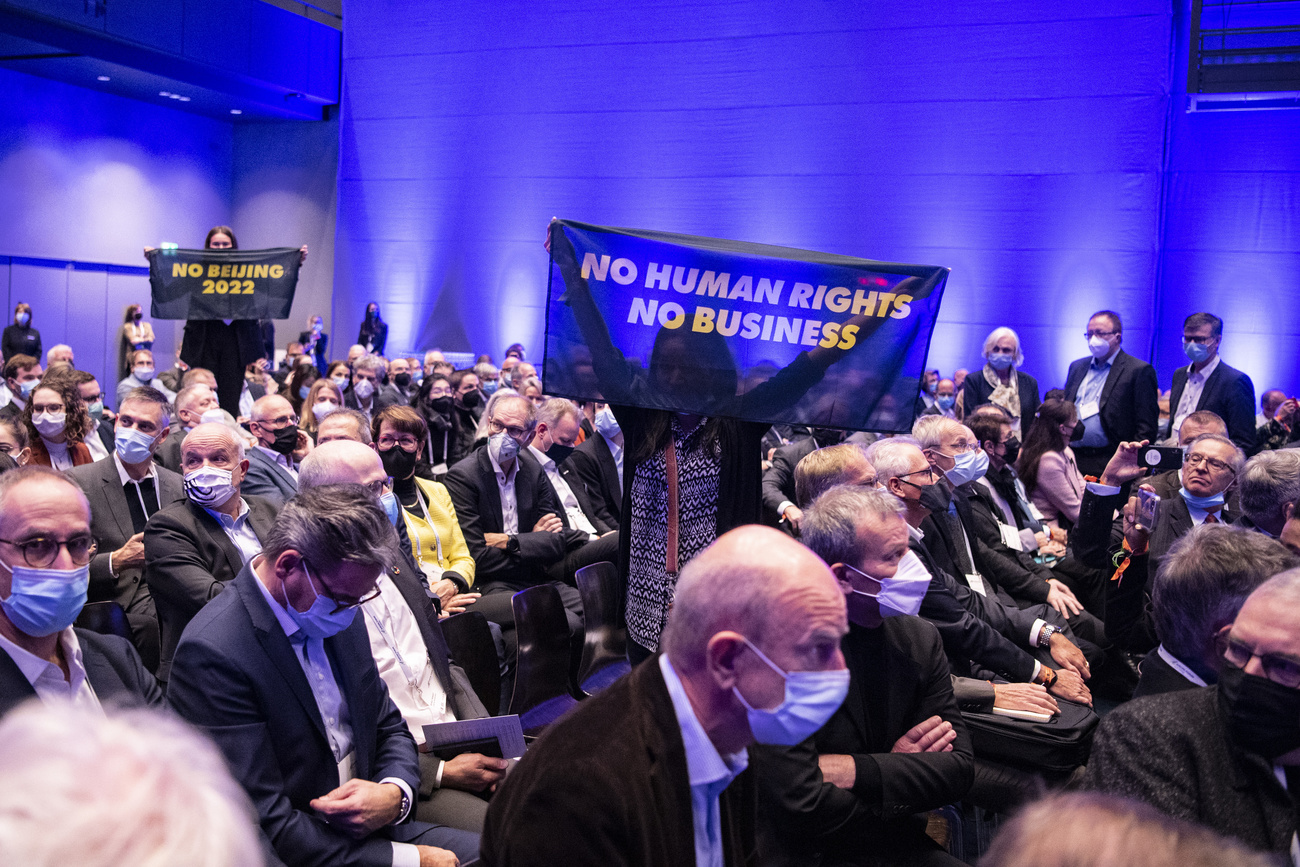
Switzerland’s foreign minister, Ignazio Cassis, is on his way to China for a meeting on Saturday to “pursue bilateral dialogue” with his Chinese counterpart. Economic ties, Covid-19 and human rights are on the agenda.
Cassis is due to meet Wang Yi in China’s eastern Zhejiand province for talks on November 27. The talks are part of annual Swiss-Chinese ministerial meetings established in 2017 to strengthen ties, the foreign ministry said in a statementExternal link.
The annual meeting “covers many areas of Swiss-China cooperation and allows for a direct and open exchange of views”, the Swiss ministry said.
Cassis is set to present the Federal Council (executive body’s) China strategy, adopted by the government in March.
“The strategy recognises China as an important partner for Switzerland’s foreign policy and provides a framework for the many ties between the two countries,” the ministry said.
In 1950 Switzerland was one of the first Western nations to recognise Communist China. Since 2010 China has been its biggest trading partner in Asia and its third-largest partner globally after the European Union (EU) and the United States. A bilateral free-trade agreement took effect in July 2014.
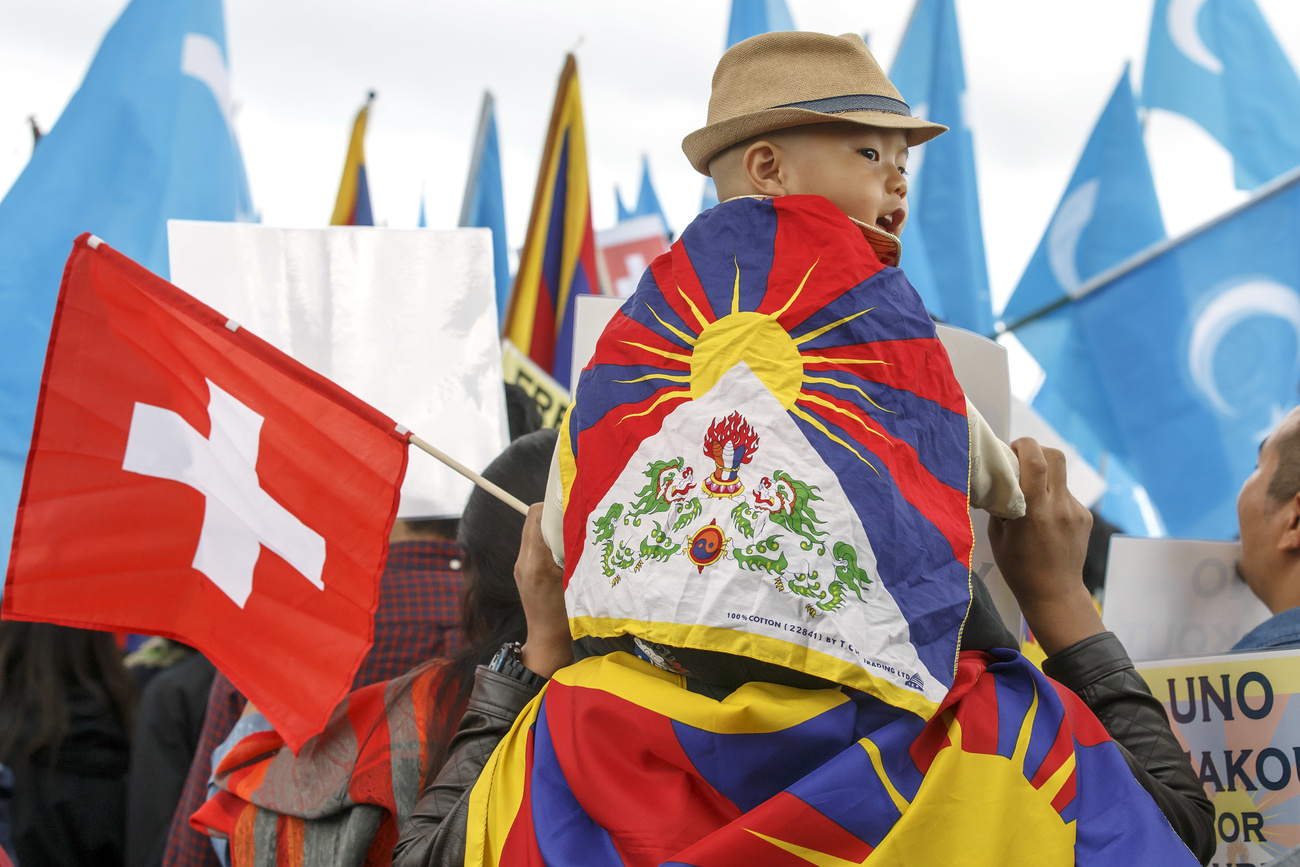
More
Swiss pursue ‘special path’ with China, says foreign minister
Human rights concerns
Human rights will also be on the agenda on Saturday. China currently faces EU sanctions, while the US and Australia are reportedly considering a diplomatic boycott of next year’s Winter Olympics in Beijing over human rights issues.
On November 24, EU ambassadors approved the renewal of sanctions on four Chinese officials and one Chinese entity as part of an extension of a human rights blacklist. The decision should be formally adopted early next month. The EU imposed the sanctions list in March over accusations of human rights abuses in the Xinjiang region, to which Beijing responded with its own sanctions on Europeans.
Switzerland’s foreign minister recently played down chances of his neutral country embracing Western sanctions against China over its human rights record.
“It’s a balancing act. On the one hand, we have difficult discussions with China about human rights, but on the other hand, the country is an important partner in economic and other issues,” Cassis said in an interviewExternal link with the Neue Zürcher Zeitung (NZZ) published on November 9.
“We cannot play the role of bridge-builder if we always sing along in the chorus with other countries.”
At the end of October Switzerland withdrew its support for a joint statement by 43 states condemning crimes in Xinjiang at the UN General Assembly.
In a statementExternal link on Thursday, Amnesty Switzerland urged Cassis to demand respect for human rights.
It said: “Economic issues and Switzerland’s good offices for talks between the United States and China should not lead to a timid attitude to human rights. Amnesty International expects the Swiss Minister of Foreign Affairs to publicly communicate Switzerland’s concerns about the serious human rights violations committed in China.”
In March 2021, China’s ambassador to Switzerland Wang Shihting strongly rejected Swiss criticism of the human rights situation in the Asian country following the unveiling of the Swiss government’s first ever China foreign policy strategy.
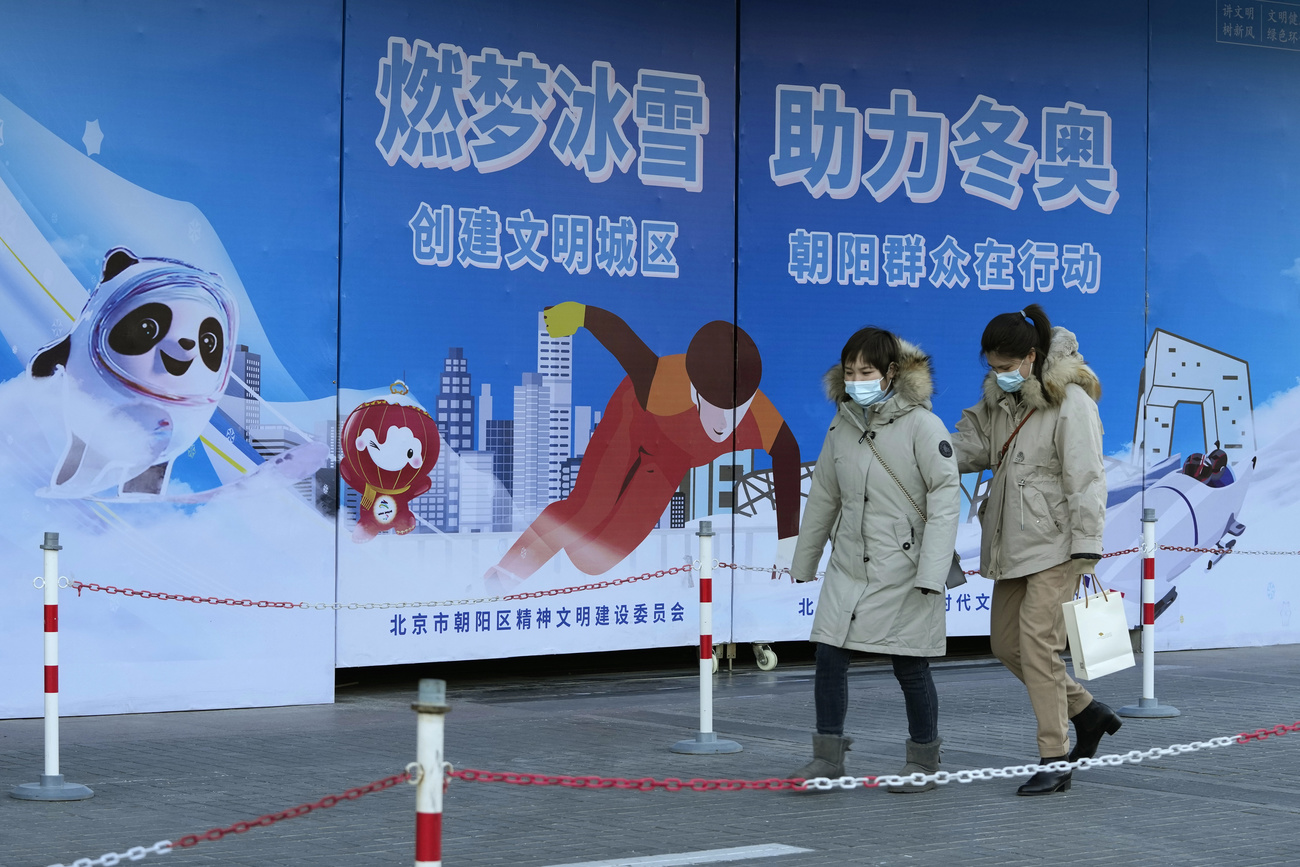
More
Pressure builds for a diplomatic boycott of Beijing Games

In compliance with the JTI standards
More: SWI swissinfo.ch certified by the Journalism Trust Initiative
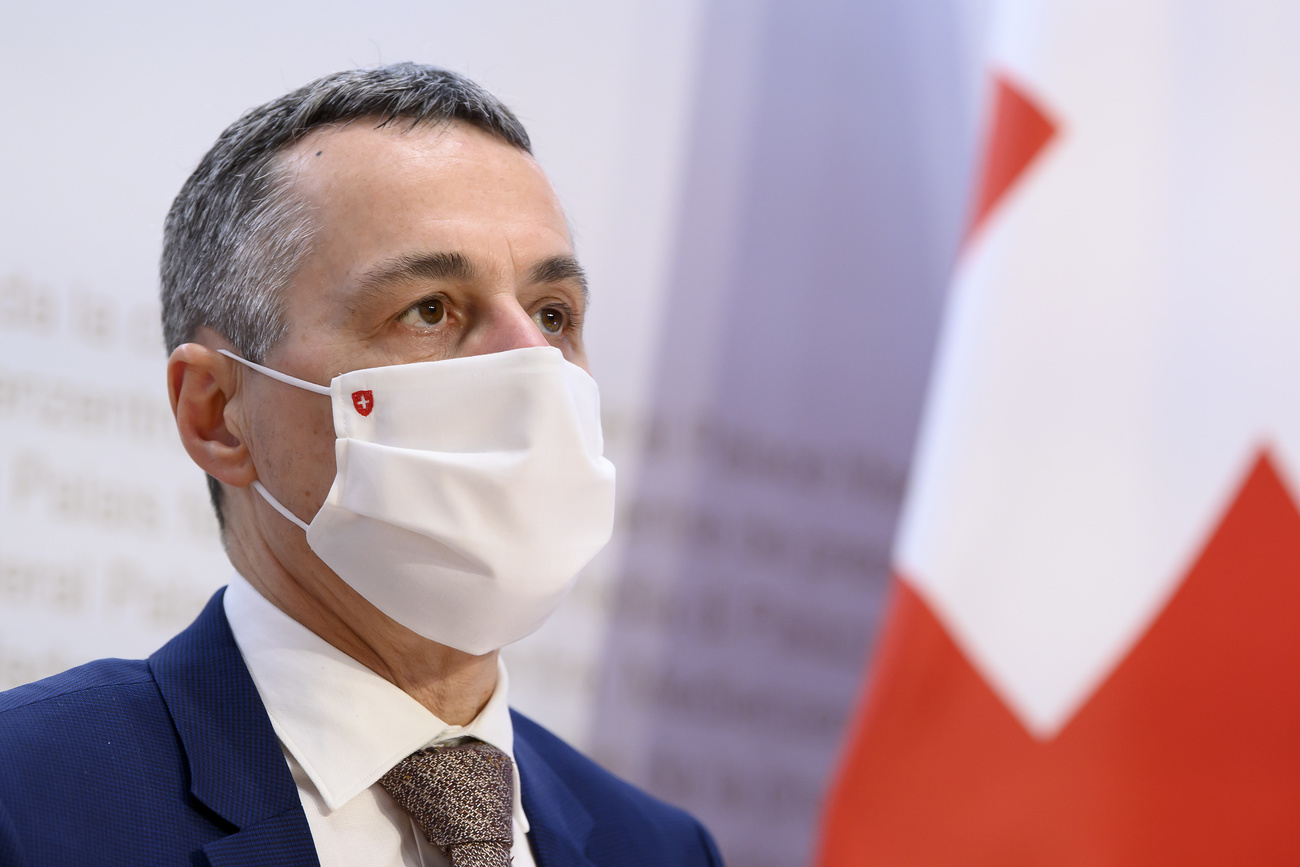
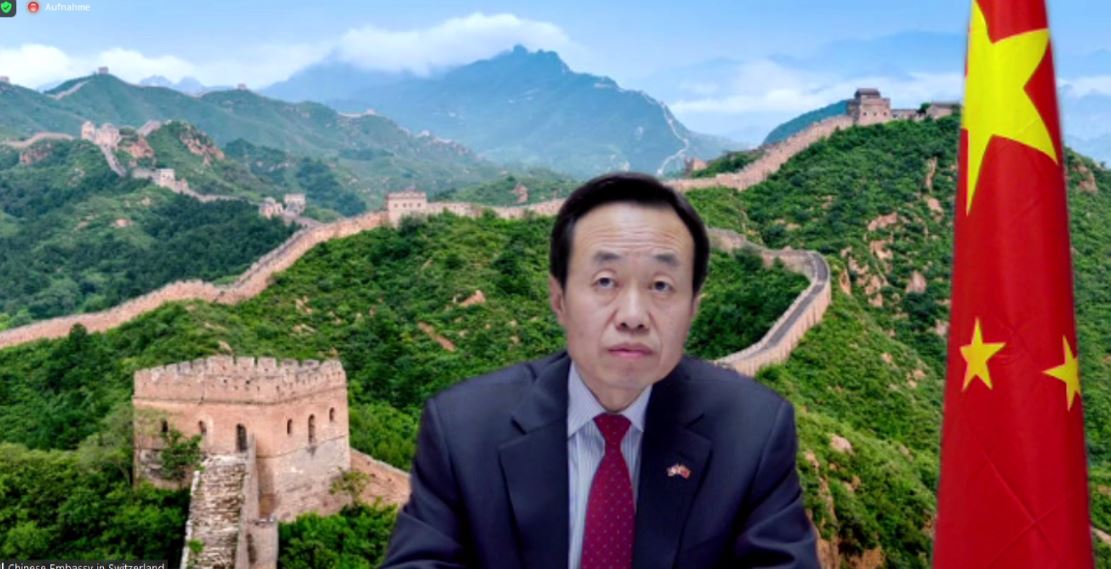
You can find an overview of ongoing debates with our journalists here. Please join us!
If you want to start a conversation about a topic raised in this article or want to report factual errors, email us at english@swissinfo.ch.